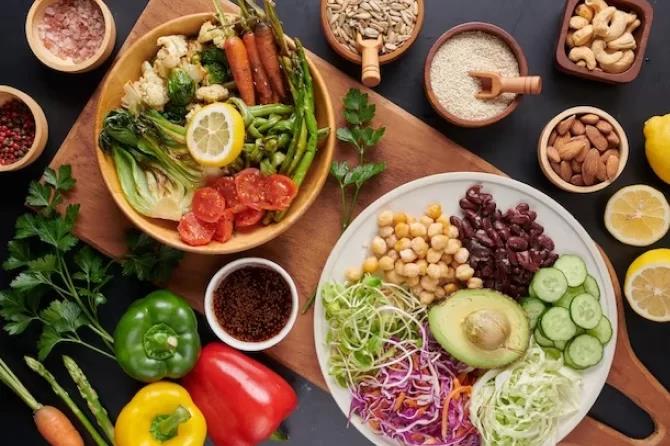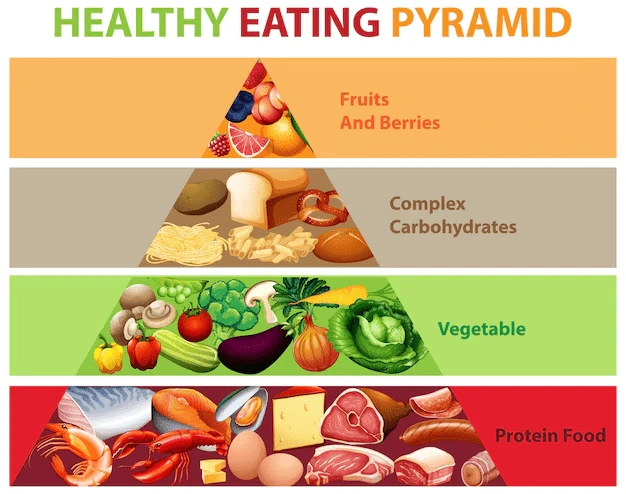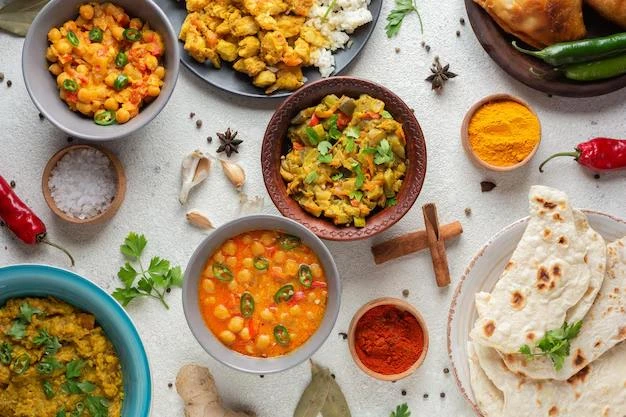
When it comes to losing weight, it’s not about crash diets or starving yourself; it is more about making smart and sustainable choices in your lifestyle and food habits. Weight loss is not about what you are quitting to lose those extra kilos—in fact, it is about how well you are nourishing yourself, says India’s best nutritionist, Prachi Shah. She always says, “Eat better and not less,” which makes so much sense and brings great insight for people to easily understand what is actually necessary and what to focus on.
Want to lose weight with Indian food? Get a well-balanced diet plan with expert nutrition tips to help you shed extra fat naturally.
Our Indian cuisine diet is one of the best-balanced diets, containing the right amount of macronutrients and micronutrients for maintaining better health and a healthy weight. India has a variety of cuisines due to its diverse culture. Every state has its own cultural values in terms of food and lifestyle. But when we look deeply into it, they serve the right combination of food for the people living in that particular area/state, according to their weather, environment, and work life. While non-vegetarians often meet the protein requirements, vegetarians sometimes lack it. Also, lately, everyone follows what is trending on social media and forgets what their body actually needs based on their own body type.
 Indian spices like turmeric, black pepper, cardamom, ginger, garlic, and cinnamon have strong anti-inflammatory properties and are antioxidant in nature. Indian food like roti, subzi, dal, rice, and pickle, when mixed with these spices, adds flavor to the food. But not just that—they also become more nutrient-dense by providing anti-inflammatory and antioxidant benefits. These spices have properties that help absorb protein and fats better, which supports digestion.
Indian spices like turmeric, black pepper, cardamom, ginger, garlic, and cinnamon have strong anti-inflammatory properties and are antioxidant in nature. Indian food like roti, subzi, dal, rice, and pickle, when mixed with these spices, adds flavor to the food. But not just that—they also become more nutrient-dense by providing anti-inflammatory and antioxidant benefits. These spices have properties that help absorb protein and fats better, which supports digestion.
Indian culture emphasizes cooking home-cooked, fresh meals and enjoying them. When we say home-cooked fresh meals, we mean that every meal is prepared fresh and consumed at the same time. Indian food is more about eating hot food—meals that are prepared hot, such as hot breakfast options like poha, upma, idli or dosa with sambar, omelette, chillas, dhoklas, etc. All these options serve a good amount of protein, carbs, and fats. To make them healthier, one cup of vegetables can be added to increase nutrient density and provide better satiety. These options are prepared hot and fresh; some are also fermented, providing good vitamin B12 and probiotics as well.
Since Ayurveda is the root of Indian food and nutrition, it advises never skipping breakfast as it is the most important meal of the day. Secondly, always prefer hot options over cold ones like oatmeal or cereals. According to Ayurveda, our body works according to the sun’s position. In the morning, the sun is bright, and so is our agni (digestion); hence, we should serve hot foods to our body and not skip any meal. Similarly, as the sun sets in the evening, our agni becomes weak. So, we are not supposed to eat heavy pulses or meals. In fact, dinners should be lighter and smaller in quantity compared to breakfast and lunch. This makes digestion more powerful and helps synchronize the circadian rhythm with the body, maintaining balanced metabolism and hormonal health.
When we talk about Indian grains like wheat, jowar, bajra, rajgira, ragi, and barley, they are nutrient-dense and packed with fiber and minerals. Using these grains alternately promotes better absorption and food diversity. Not just that, it also boosts weight loss. Pairing them with green vegetables and pulses or legumes is the best combination of complex carbs, protein, good fats, and fiber.
Balanced nutrition is the key to a healthy life. An Indian balanced diet comprises good fats, simple and complex proteins, and complex carbs. Along with that, every meal should contain a good amount of fiber. Including lean proteins in the diet can significantly help in reducing symptoms and improving overall health. Lean proteins help in weight management by maintaining higher satiety levels, reducing overall calorie intake, and improving immunity. Good fats contain monounsaturated fatty acids (MUFA) and polyunsaturated fats (PUFA). Omega-3, omega-6, and omega-9 fatty acids support brain health, heart health, and improve the absorption of nutrients in the body.
Foods high in unhealthy fats, sodium, sugar, added preservatives, and artificial sweeteners should be completely avoided as they can inflame the gut. Yes—for any chronic condition, the root cause of disease is often poor gut health. If the gut is not healed, it can lead to inflammation, which eventually causes obesity, type 2 diabetes, hypertension, etc. Foods like bakery items, fried foods, sugary foods, and packaged items are highly processed. As they lack fiber and nutritional value, they can cause digestive issues such as chronic constipation, bloating, acidity, gastric problems, irritable bowel syndrome, etc. These are the first signs of obesity and may eventually lead to cancer. Also, reheating food can deplete nutrients and may even result in cancer risk. Hence, it is important to eat freshly made home-cooked food for better health.

Make sure that the body is well hydrated. Hydration helps with satiety levels and can prevent boredom eating, which is one of the biggest causes of obesity in today’s youth. It is essential to stay hydrated, as good hydration—along with fiber and protein—promotes better digestion, regulates body temperature, supports kidney function, prevents urinary tract infections, promotes better skin and hair health, and maintains cognitive function.
Lastly, prioritize your mental health. Mental health is one of the biggest health concerns today. The happier and more joyful you are, the less stressed you will be. Stress can increase inflammation and oxidative stress in the body, leading to gut-brain imbalances and reduced nutrient absorption. Prioritizing mental health means focusing on balanced nutrition, staying physically active throughout the day, practicing meditation, and improving sleep quality. All of these are pillars of good health, as they release happy hormones and reduce oxidative stress and inflammation.
Hence, the Indian diet is extremely rich in all macronutrients and micronutrients. It also naturally includes probiotics and vitamin B12, which help maintain a healthy and less inflamed gut. All of this can be incorporated into a successful weight loss process when eaten in moderation.
I’d love to learn more about you and how we can work together to get our healthy meals on the table.